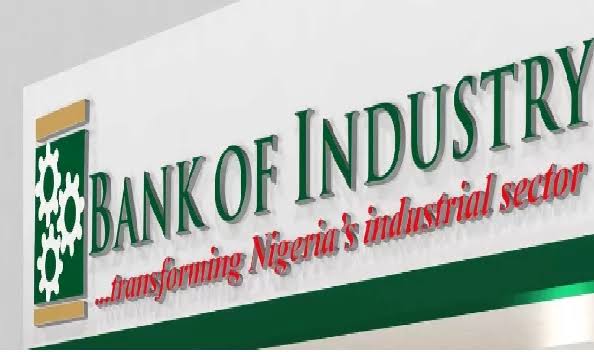Businesses need funds from time to time to maintain their cash flow. They require substantial working capital to ensure the smooth operation of business activities and boost profitability. Whether it is purchasing new equipment, hiring and training staff, expansion to larger premises or procuring new inventory, business persons need financing for their venture.
There are various players in the market which can provide business loans. Non-banking financial corporation, traditional banks, government institutions and crowdfunding are multiple options where business men can apply for business.
If there are anywhere entrepreneurs can get cheap or single-digit funds (often at nine percent lending rate), it is from the Bank of Industry (BoI).
Nigerian industrial sector which is the primary domain of BoI, is faced by myriads of challenges and problems which have greatly affected the pace of industrialization in the country and subsequently economic growth and development.
Consequently, the federal government has tried to intervene over the years in certain sectors of the economy to accelerate the pace of industrialization and subsequently economic development. The intervention processes have been done by the federal government using funds, policies or generally through providing enabling environment.
The Bank of Industry offers different loan facilities to both Small and Medium Enterprises (SME) and Micro,Small and Medium Enterprises (MSMEs) among others.
While some of the loans are a Federal Government of Nigeria initiative, they are designed to provide subsidized loans at nine per cent per annum, and an all-inclusive interest rate.
Roles of BoI in Business Finance
Established in October, 2001, BoI is largely a state-owned Development Finance Institution (DFI) charged with the responsibility of promoting the emergence of a virile industrial sector. In other words, BOI was conceived to catalyze the transformation of the real sector.
The Bank has a mandate of providing financial assistance for establishment of large, medium and small enterprises; as well as expansion, diversification and modernization of existing enterprises and rehabilitation of ailing industries.
Its Credit Facilities
The BoI has a number of funds that entrepreneurs of all levels can access. The Bank of Industry targets businesses that engage in manufacturing and processing activities. Target sub-sectors include; Agro-processing, Solid Minerals, Information Technology, Oil and Gas and Creative Industry.
Bank of Industry only finances enterprises or companies and not an individual person or group of persons. The company/enterprise must be duly registered and will be required to provide the registration number for a Limited Liability Company or business name for an enterprise before you can proceed with your application.
BOI’s loan support to the SME starts from N5 million. However, loans below N5 million are provided on BOI’s matching fund platform which is operated in collaboration with various state governments and on their Bottom of the Pyramid (BOP) scheme which is operated through MicroFinance Banks.
BoI provides access to funds for startups, SMEs, and large enterprises and by access, it facilitates the entire process, right from pre-loan application.
The managing director/CEO Chairman of BoI, Mr. Olukayode Pitan, at the Bank’s 62nd Annual General Meeting (AGN) in Abuja, said the upward trajectory in the bank’s performance and results have enabled it to attract local and foreign capital in order to fulfill the obligations of its mandate.
“Most recently, in February 2022, BoI successfully issued a €750 million Eurobond to enhance its capital base to support its customers and the real sector of the Nigerian economy.
“In the year under review the Bank disbursed a total of N213.63 billion to 30,406 Nigerian enterprises through both direct and indirect methods. This represents a 47.3 per cent increase over disbursements in 2020.
“The 2021 disbursement includes N2.99 billion to 22,120 farmers through the bank’s Smallholder Farmers on-lending product; and N1 billion to 4,000 micro-retailers through the Bank’s MSME Distributor Finance Programme. Through these interventions, an estimated 950,640 direct and indirect jobs were created in 2021,” he said.
Pitan also reaffirmed the bank’s continued efforts towards supporting its stakeholders and achieving its mandate.
President Muhammadu Buhari, had earlier, commended the bank for disbursing more than N1.24 trillion to 4.2 million beneficiaries from Micro, Small, Medium and Large enterprises.
Buhari said that the bank had continued to successfully execute its mandate as a policy institution of the federal government, extending single-digit interest rate loans to manufacturers.
He said: “in order to further enhance its capacity to impact the industrial sector on a transformational scale, I approved the issuance of a sovereign guarantee to help the Bank raise funds in the Eurobond market. I am glad to note that the Bank has recently completed the transaction by raising €750 million from international investors.
“The proceeds of this Eurobond will be disbursed to Large, Medium & Small Enterprises, and women entrepreneurs with bankable projects. It is commendable that the Bank sources its own funds for lending based on its investment-grade ratings by the rating agencies.”





